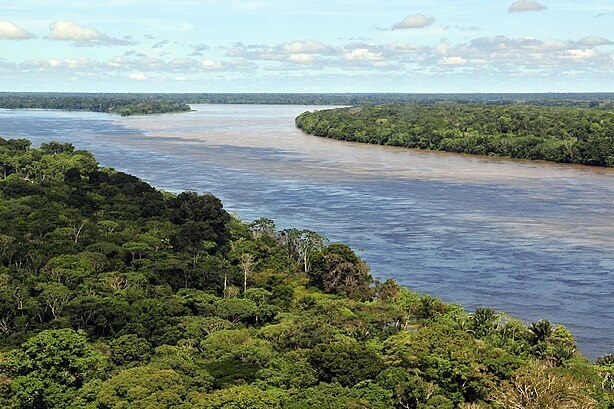
A proposed law in Brazil could cause “serious environmental damage and human rights violations” and represents “a rollback of decades of protection”, including for the Amazon, a UN expert has warned.
Astrid Puentes Riaño, UN special rapporteur, criticised the legislation – which aims to speed up approvals for major development projects – as Brazil prepares to host the COP30 climate summit later this year.
Earlier this month lawmakers passed a bill that would streamline environmental licences for roads, dams, energy projects and mines. The legislation is now awaiting presidential approval.
Critics have labelled it the “devastation bill”, warning it could fuel deforestation and environmental abuses. Supporters argue a unified national licensing regime would simplify what they see as an overly complex system, reducing costs and delays.
Under the changes, some smaller projects could bypass full scrutiny through self-declared environmental assessments submitted online. Campaigners say this raises serious risks, particularly for mining in the Amazon.
Ms Riaño said that she feared the lighter regulations would “apply to some mining projects” and will “impact the Amazon region”.
She also said was “very worried” about plans for automatic renewal of some projects’ licences where no major changes have occurred, saying: “This will prevent environmental impact assessments from being done on these projects. Some of the projects will include mining projects or infrastructure projects where a full assessment is needed.
“It will also cause deforestation. Modifications or continuations of projects might mean deforestation in the Amazon without a proper assessment.”
A lot of deforestation and land-clearing in the Amazon has been driven by agriculture and mining, sometimes illegally – but Ms Riaño said the bill is “going backwards” on efforts to prevent that.
Fresh analysis earlier this year showed vast areas of forest were lost in 2024, with drought-driven fires adding to the pressure.
The bill would give environmental agencies 12 months – extendable to 24 – to approve or reject licences for strategic projects. If deadlines were missed, licences could be automatically granted.
Supporters say this would provide certainty for businesses, citing stalled projects such as hydroelectric dams and grain railways. Ms Riaño acknowledged the need for efficiency but said assessments must remain “comprehensive” and “science-based”.
The draft law would also relax consultation requirements with indigenous and quilombola (Afro-Brazilian) communities, unless directly affected. UN experts warn this risks undermining participation and violating rights.
Environment minister Marina Silva has condemned the bill as a “death blow” to protections, but she has clashed with President Luiz Inácio Lula da Silva on other issues, including proposals for Amazon oil drilling.
Lula has until 8 August to decide whether to sign or veto the bill. Even if he rejects it, Brazil’s conservative-dominated Congress could attempt an override.
Environmental groups warn of a major setback. The Climate Observatory called it the country’s biggest reversal since the military dictatorship, when roads and agricultural expansion drove Amazon deforestation and forced indigenous displacement.
Ms Riaño said Brazilian scientists estimate the bill could strip protections from more than 18 million hectares – an area the size of Uruguay. “The consequences are huge,” she said.
——————————————————————————
At Natural World Fund, we are passionate about restoring habitats in the UK to halt the decline in our wildlife.

